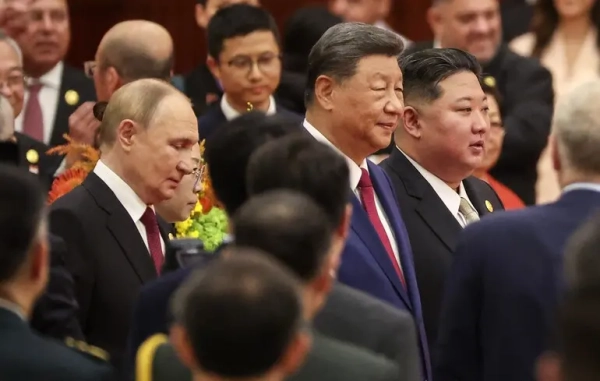
As jury selection begins for Harvey Weinstein's rape retrial in New York, some potential jurors have expressed concerns that they will not be able to be impartial toward the former Hollywood mogul.
Mark Axelowitz, the actor who plays a Manhattan prosecutor in Robert De Niro's new film “The Knights of Alto,” was among more than a dozen candidates who raised their hands when the judge asked who believed they could not remain neutral.
“I don't like this man, he's a really bad man,” Mr. Axelowitz told reporters after his candidacy was rejected.
Another potential juror who was disqualified excluded herself because she had previously been a victim of sexual assault. One added: “I don’t understand how anyone can be impartial.”
Weinstein is being tried again after New York's highest court, the Court of Appeals, last year overturned his 2020 conviction and 23-year prison sentence and ordered a new trial, ruling that improper rulings and prejudicial evidence tainted the original proceedings.
The ruling gave Weinstein a second chance to fight the allegations, as the new trial takes place in a different context than the first, which took place amid a sexual harassment settlement.
Weinstein, 73, who has pleaded not guilty and denies raping or sexually assaulting anyone, has grown older and weaker, regularly being hospitalized for various health problems.
Today, he is far from being the same person who was one of the most influential people in the film industry.
Even if he is acquitted, he will not be released.
Weinstein is also appealing his 2022 rape conviction in Los Angeles. His 16-year prison sentence in that case remains in effect, though his lawyers argue it should be reviewed because the overturned New York ruling was taken into account in determining his sentence.
Weinstein is being retried on two charges from his original trial: He is accused of raping an aspiring actress in a Manhattan hotel room in 2013 and committing criminal sexual act with a film and TV production assistant in 2006.
He also faces one count of criminal sexual act based on the testimony of a woman who was not a party to the original case. The woman asked that her name not be released publicly.
Speaking outside the court on Tuesday, the prosecutor's attorney, Lindsay Goldbroom, said one thing would be “crystal clear” from her client's upcoming trial testimony: “This was not consensual. This was sexual assault with force.”
“I am confident that justice will be done in this case,” Ms Goldbroom told reporters, adding that her client was determined to give evidence.
“It is important for women around the world and for people who have been victims of sexual violence that others lead the way and demonstrate their commitment to ending sexual violence.”
Judge Curtis Farber has set aside at least four days for jury selection and expects opening statements and trials to begin next week.
The judge, prosecution and defense will work to whittle the large pool of potential jurors down to the 18 people — 12 primary and six alternates — needed for the trial by asking questions and seeking to exclude those they believe cannot fairly judge the case.
Jury selection will involve calling in about 80 potential jurors at a time for two main selection questions. The first group was called in late Tuesday morning after defense attorneys and prosecutors ironed out some last-minute kinks.
Along with the question of impartiality, the judge also asks each group of potential jurors to raise their hands if they have jobs, families or other commitments that might prevent them from fulfilling their duties.
Mr Farber said anyone who raised their hand in response to any of those questions would be released.
Those remaining will be seated in or near the courtroom (24 people at a time) and will be asked additional questions about such things as education, employment, and whether anyone they know is in law enforcement or has become one.
Sourse: breakingnews.ie






